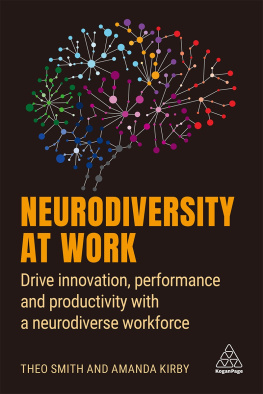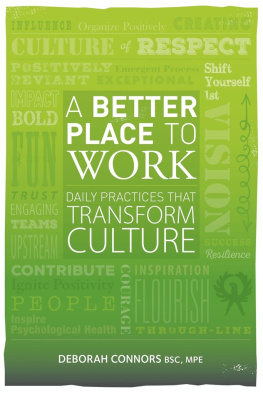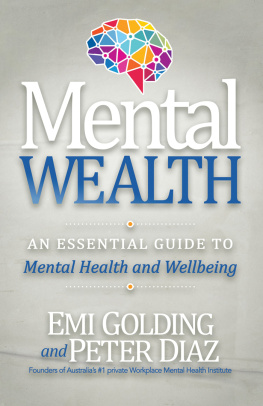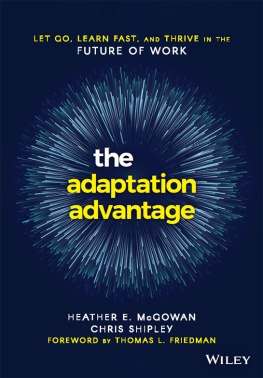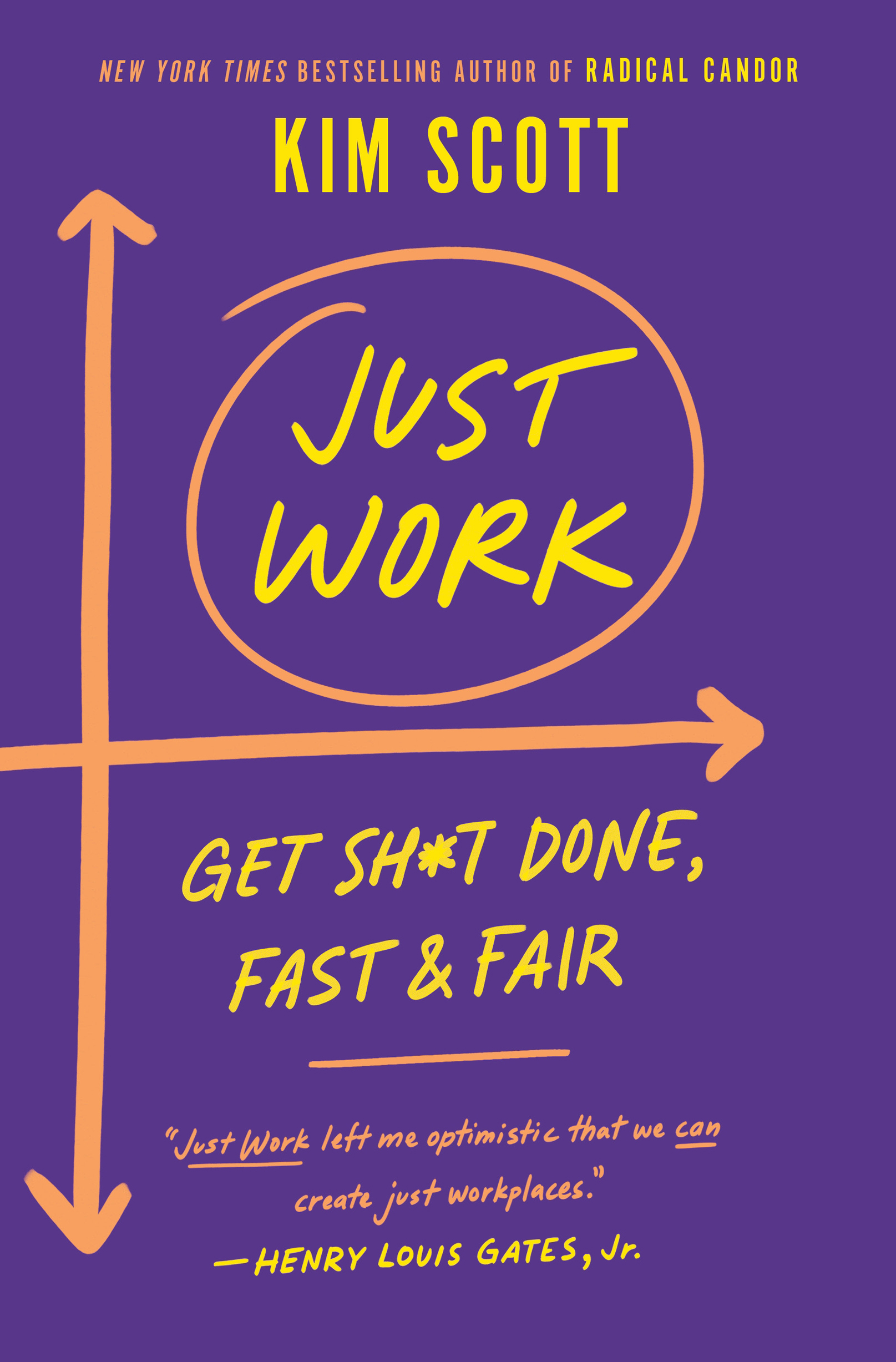The author and publisher have provided this e-book to you for your personal use only. You may not make this e-book publicly available in any way. Copyright infringement is against the law. If you believe the copy of this e-book you are reading infringes on the authors copyright, please notify the publisher at: us.macmillanusa.com/piracy.
Difference must be not merely tolerated, but seen as a fund of necessary polarities between which our creativity can spark Only then does the necessity for interdependency become unthreatening.
I never wanted to think of myself as a victim, a person harmed by injustice at work. Even less did I want to think of myself as a perpetrator, a person who causes harm or contributes to injustice. And so I didnt think about it. I marched through my career ignoring the unfair disadvantages and advantages I had, the ways I was automatically underestimated and overestimated.
If youd asked me five years ago whether being a white woman had an impact on my work, I wouldve shrugged and said, Not really.
Its hard for the author of Radical Candor to admit, but I was in denial. I worked in Memphis, Boston, New York, Silicon Valley, Paris, Moscow, Jerusalem, Pristina, and elsewhere. I have managed teams that spanned the globe, from Japan to China to Australia to India to Ireland to Brazil to Mexico. But wherever you go, there you are. I was always a woman and there was always gender injustice, everywhere. I also had a host of privileges that made my life easier, usually in ways I didnt like to think about. I was always white, and there was always racial injustice, everywhere. I was never poor, and there is always economic injustice, everywhere. I was always straight, and there is always homophobia, everywhere.
To expose the depths of my refusal to recognize reality, let me tell you about my first job after college. This happened in 1991. I was 23 years old and Id taken a job working for a private equity firm.
It all started with an anecdote. Robert (not his real name), the CEO of the firm, had a story he loved to tell about going to the Bolshoi Ballet with some of our companys Soviet partners. The first time (but certainly not the last) I heard the story was at the end of a strategy meeting. Heres how Robert told it:
So, the ballet is finally over, and Vladimir leans over and whispers, Robert, do you like ballerinas?
Robert mimicked how he felt taken aback by the question and said, Sure.
But, Robert, the Russian factory director hissed, which ballerina?
Robert looked around at his audiencethree young men and mewith raised eyebrows. He was offering to deliver the ballerina of my choice to my hotel room!
The men laughed, half in admiration and half in disbelief, but I felt sick to my stomach. How could they possibly think this was funny?
Did you take him up on his offer? one of the young men asked. Do you think he could really deliver?
Here Robert glanced in my direction and then turned the full force of his self-righteous glare on the young man. No, of course not. I am not that sort of person. But, yes, I think he could have delivered.
The young men were impressed. I was horrified.
Robert seemed to think hed done enough by not availing himself of the offer. Robert is no hero in this story, but I do know he and the other men on my team shared my belief that human trafficking was immoral. Yet when we were working with a partner who claimed it was his right to procure for Robert any dancer he wanted, nobody said a damn wordincluding me. Robert turned the whole thing into a funny anecdote, as if laughing at the situation made the whole thing not quite real. Denial.
Not long afterward, I learned that I was being paid significantly less than the market salary for my role. A friend of mine in a similar job told me she was being paid four times more than me. My friend explained her salary was the market rate, what the guys got paid. When I told my boss, Thomas, this, he exclaimed, She must be sleeping with her boss! That was BS, and I said so. When I asked Thomas for a raise, he acted as though I were putting him in an unreasonably difficult position with Robert, the CEO. A legend in our business, Robert was known equally for his success as a contrarian investor and his explosive personality. I suspected that Thomas didnt think Id talk to Robert myself.
At the first opportunity I asked Robert for a meeting and soon found myself facing him in a conference room. He was seated comfortably in an armchair. Something about his big belly and unruly white hair gave him a benevolent appearance, like Santa Claus. He motioned toward a small wooden chair opposite him. At first he was genial, if patronizing. You know that our Russian partners call you my secret weapon. He laughed uproariously, and I tried to laugh along, not quite sure what was so funny. When I raised the issue of my salary, the shift was immediate: Santa Claus was gone. Now he resembled a bird of prey. His piercing glare and furrowed gray eyebrows made it clear that he wasnt used to being challenged, especially not by the likes of me. He stared at me unblinkingly for what seemed like several minutes.
I dont know what makes you think youre underpaid, but I can assure you it wouldnt be fair to the others to pay you more, he said with a note of finality, and put his hands on the arms of the chair as if he was about to get up. But I had come prepared with data about my peers and average salaries in the industry, and I forced myself to put my evidence forward. My data pissed him off.
If I paid you that much, youd make more than my daughter makes. I know you dont want to come between me and my daughter. This non sequitur was so egregious that I didnt even bother pointing out that his daughter was a teacher, or that the solution to not paying teachers enough wasnt to lower the salaries of women but not men in finance. I didnt dare say that because Robert was really angry, almost unhinged. The conversation ended abruptly.
Today, 30 years later, I know that Roberts response was classic gaslighting. At age 23, though, his irrational rejection of my reasonable argument made me wonder if Id done something wrong. What had I failed to understand? Unfortunately, gaslighting works, unless you know how to confront itwhich I did not. Instead, I tried not to think about the issue of unfair pay anymore.
Our team spent most of our time in Moscow collaborating with our Soviet partners. While in Moscow, we lived and worked together in a big house provided to the project by the Soviet Ministry of Defense. My boss, Thomas, and I were frequently traveling together all over Russia and Ukraine all the time, eating most of our meals together. When he confided to me that he had a serious and chronic medical condition and feared that he might not live much past 40, I started to worry about him. One night after wed been up late working on some financial projections, he kissed meand promptly burst into tears. He told me he was a virgin and deeply afraid that he would die that way. I made sure that he didnt. Friends later told me Id been played. Maybe I had been. Either way, Im glad Thomas is alive and well today. I dont wish him ill, but I do wish hed been held accountable.


